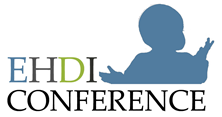| Abstract Information: |
| Title: |
Health outcomes for deaf children: Results of a survey of deaf adults |
| Primary Track: |
5-Follow-up, Tracking, and Data Management
|
| Keyword(s): |
health; disparities; outcomes; sign language |
Abstract: |
Objective
To survey adults deaf since birth/childhood to learn about their health and health care experiences.
Background
Adults deaf since birth or early childhood comprise a population that is frequently excluded from health research. Telephone surveys, including those sponsored by CDC, are inaccessible to deaf people and therefore yield no baseline data to address Healthy People 2010 goals. Many adults deaf since birth/childhood use sign language, which differs from English and has no written form. For complex reasons, many deaf adults have low English literacy. A goal of the CDC-funded Rochester Prevention Research Center: National Center for Deaf Health Research (NCDHR) is to describe and address health disparities through community-based participatory research.
Methods
NCDHR researchers and community members adapted the CDC Behavioral Risk Factor Surveillance System (BRFSS) for use with deaf people. A computer-kiosk with touch-screen interface presents the survey items in American Sign Language (ASL), English-based signing, and written English. Survey topics include BRFSS health topics and deaf-related items (including age-at-onset, communication preferences, school setting, and deaf family members). We administered the survey to two samples: one local to Rochester, NY (n=302) and one national (n=215)
Results
In preliminary analyses of partial data (n=283), the participants’ mean age is 46yo (range 18 – 88). For age-at-onset of deafness, 70.2% of participants report being deaf since birth, 18.3 between birth and age 3, and 5.3% between 4 – 18yo. Other preliminary analyses suggest health-related disparities compared with the general population. Analyses before March 2009 will consider data on communication method, school setting and deaf family members.
Conclusions
Adults deaf since birth/childhood appear to be at increased risk for previously unmeasured health issues. Deaf people, family members, researchers, clinicians, and public health and other concerned professionals should continue to work together to identify and address health issues experienced by adults deaf since birth/childhood. |
| Presentation(s): |
Not Available
|
| Handouts: |
Not Available
|
|

